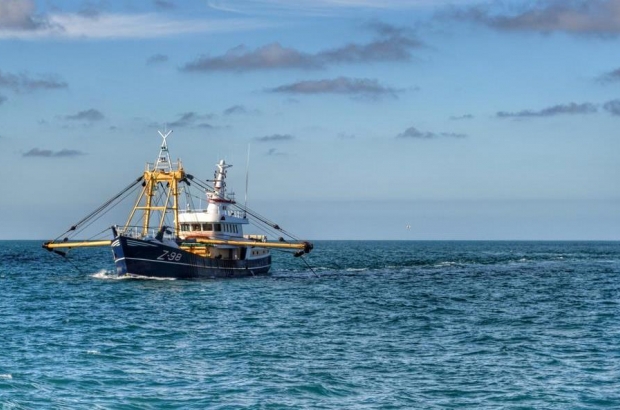- Daily & Weekly newsletters
- Buy & download The Bulletin
- Comment on our articles
Belgium wants to be pioneer in autonomous shipping
Developments in self-driving cars have gained many media headlines, with Elon Musk’s Tesla Model S – seen as one of the groundbreakers in semi-autonomous technology – that entered the market this year being one notable example.
Autonomous ships are far less in the spotlight, but this is likely to change – and the small country of Belgium is keen to lead the way.
As one lawyer from the navigation unit of Belgium's mobility and transport ministry told RTBF: “With its avant-garde legislation and international agreements, Belgium aims to become a leader in managing autonomous maritime traffic. It currently has no control centre for autonomous ships, but we plan to establish one in the next 10 years.”
Belgium is already a pioneer in developing self-driving ships at sea. It uses many such vessels used for interior navigation. In April 2022, after six months at sea, the solar-powered Mahi2 with no team on board arrived in Martinique. The six Belgian engineers behind the project were able to show that an autonomous boat could travel long distances with no human presence.
The lawyer is confident that advances can be made, "even if for the moment this only concerns very small boats".
He added: “We must create a legislative framework that allows for innovation and future developments. In June 2021, Belgium adopted a first royal decree on the issue, but this is temporary, pending international legislation being considered by the International Maritime Organisation (IMO).”
Promoters of autonomous shipping projects see many advantages in this means of transport. They say it can offer substantial savings over "traditional" shipping, because a small team can monitor several ships simultaneously from a land-based control centre. This type of shipping is also safer, as accidents due to human error would be avoided.
Another argument highlighted in a March 2023 Belgian government study is that autonomous navigation is not only more environmentally friendly but also more efficient, as it enables better planning of vessel movements.
But the new technology comes not without risks, the researchers said. These include cyber-attacks and hardware and software failures. In addition, the legal liability is unclear, regulatory compliance is complex and navigation safety is challenging for ship operators. The impact of self-driving ships on employment – with job losses inevitable – also needs assessment.
On 14 September, Belgium’s vice-president and justice minister, also minister for the North Sea, Vincent Van Quickenborne, said that in view of the desire to progress on this issue, Belgium, the UK and Denmark had signed an agreement facilitating autonomous navigation between the three countries.
“Cooperation with the UK and Denmark will allow ships to sail beyond Belgian maritime waters without having to request a permit from each of these countries and thus move across a large part of the North Sea,” he added.
Belgium is also a natural candidate for self-driving ships as it has a border with the North Sea – one of the busiest in the world for ships. It contains the major port zones of Antwerp and Zeebrugge as well as being close and having routes to Rotterdam, Le Havre and across the Channel, London. Indeed, it is here that dedicated transport lanes have been created between the English and French coasts.
In short, development of autonomous shipping seems to be inevitable, the transport ministry lawyer said. However, he cautioned that there were many levels of autonomy and that different tasks would mean varying levels of automation, “from total control of a ship from a distance, to help with technical tasks”.
In the same way, boats would never become captainless or without a team overnight. This will happen in stages and with reflection on what system to put in place.
And, just as for cars, there are set autonomy levels – here defined by the IMO. These range from Degree 1 – where some operations are automated and unsupervised, but people are always on board to take control if necessary – to Degree 4 – complete autonomy, when the ship can control itself.
Moreover, long term it will also be necessary to set up an equivalent infrastructure to that used in the aviation sector, with air control centres adapted to maritime traffic.
The Belgian transport ministry lawyer concludes that developing autonomous navigation in the North Sea is much more complicated than on inland waterways: "We must first guarantee the safe passage of boats to the telecommunications networks that will control them remotely," he added.
A framework must be devised, taking into account that there are many ports in this area with many vessels coming and going, from small boats and fishing vessels to larger container ships and oil tankers.
Other factors to consider include the low depth of water near the coast and the large number of offshore structures at sea - for example, navigation beacons, wind turbines and traffic separation devices.

















